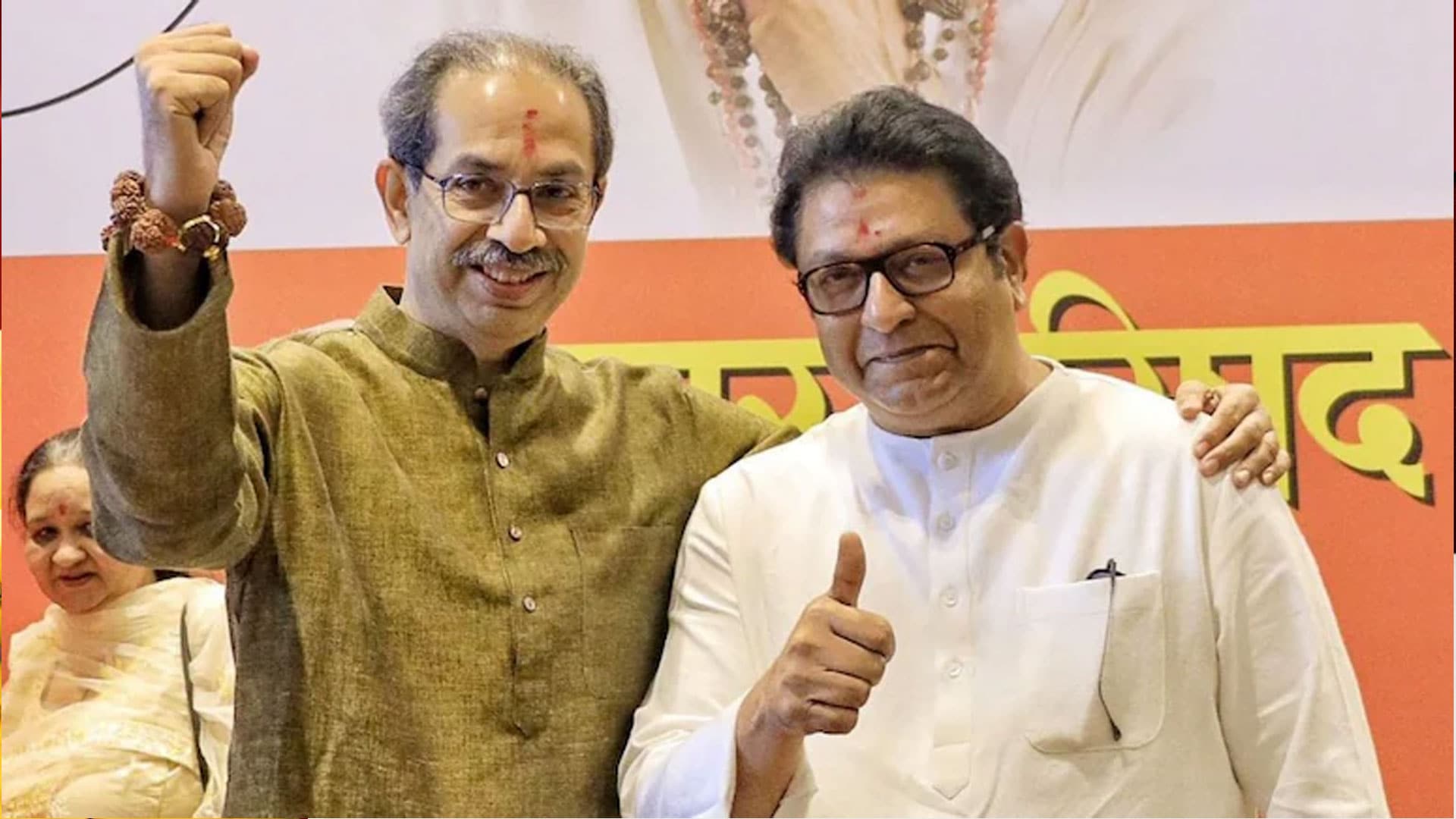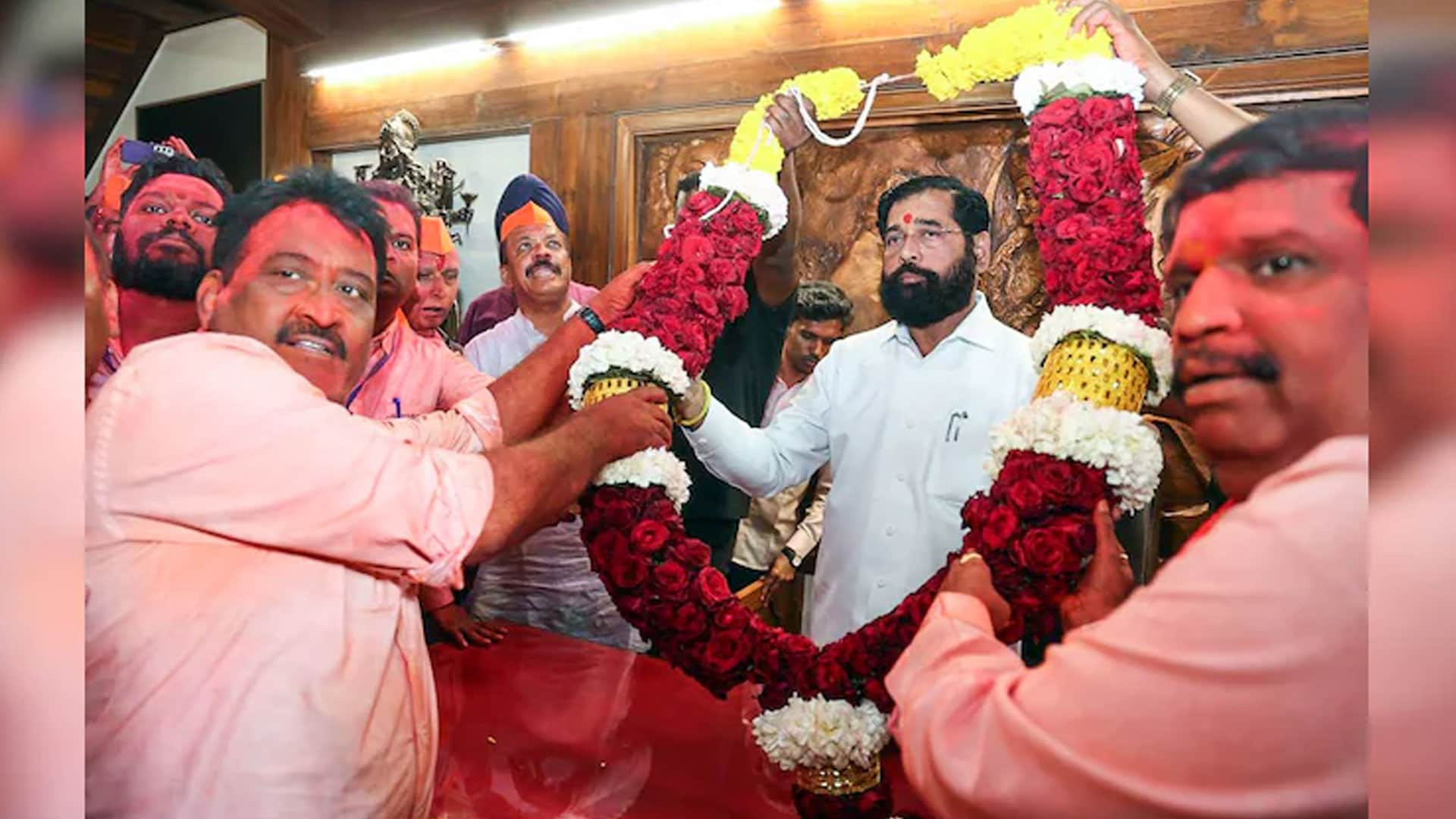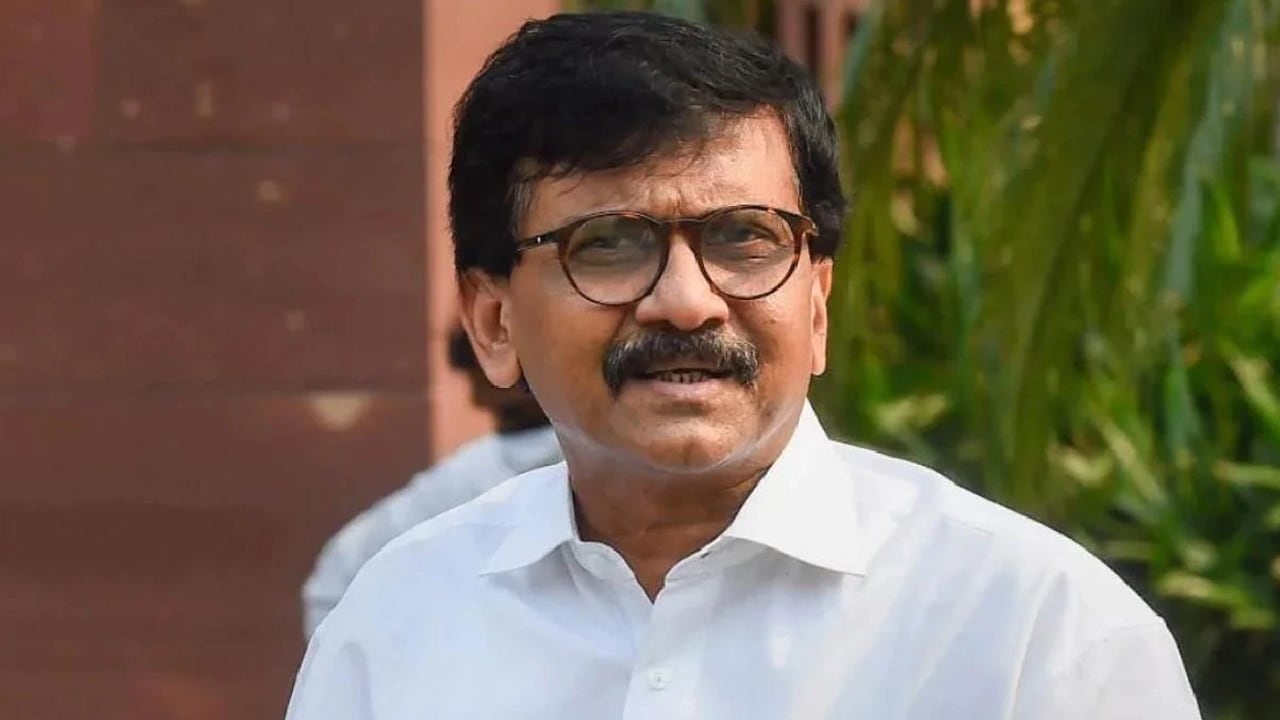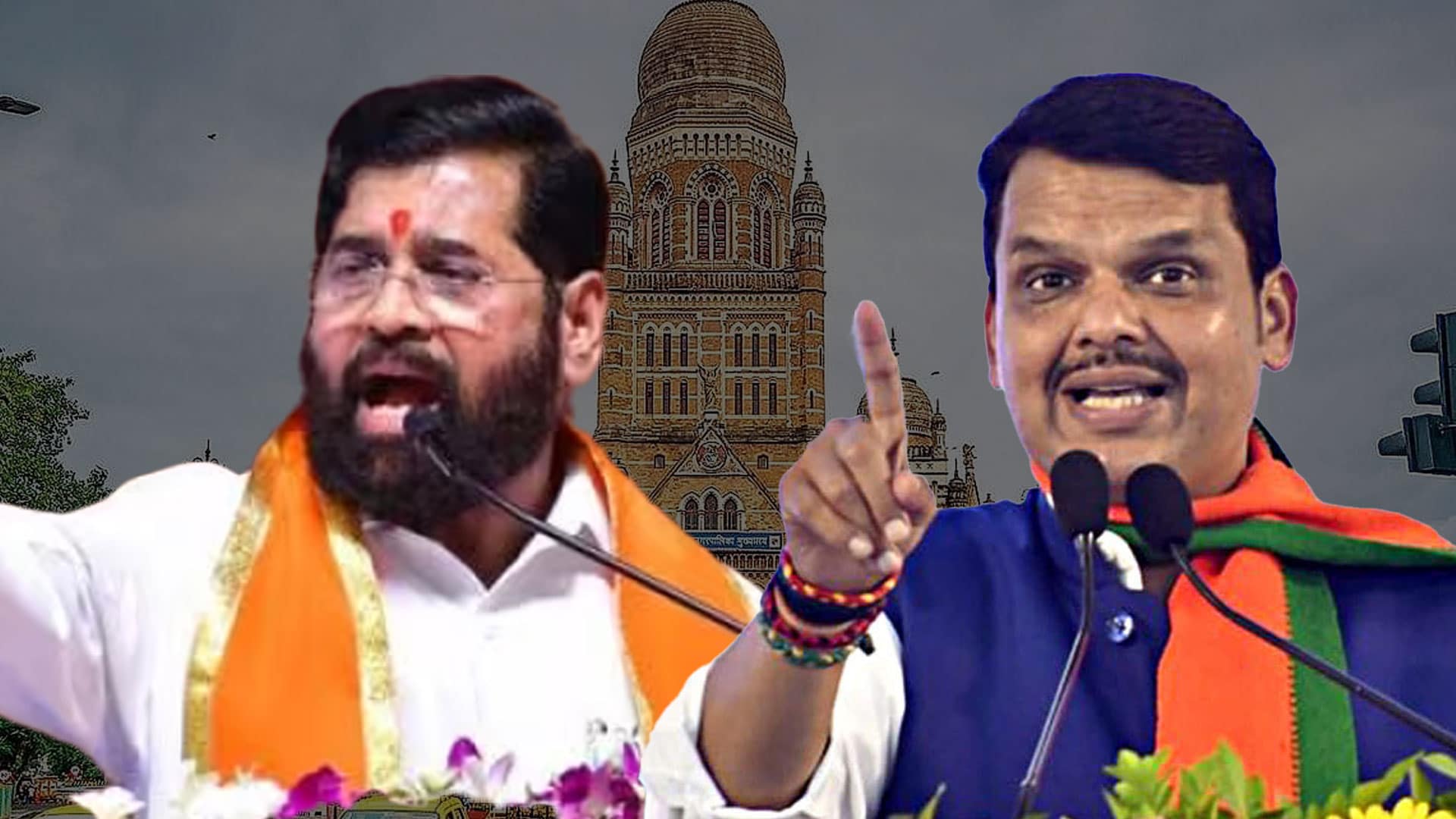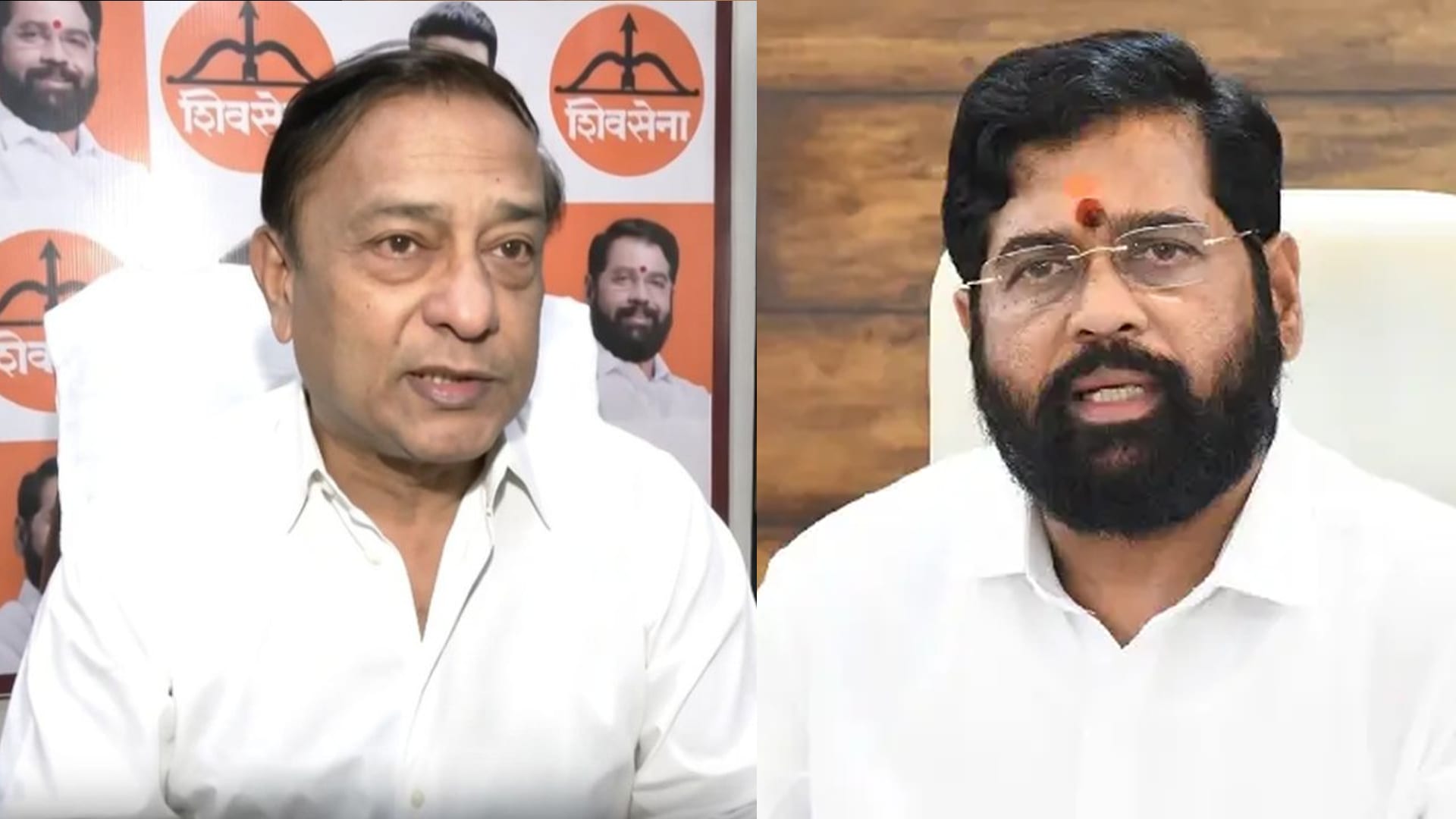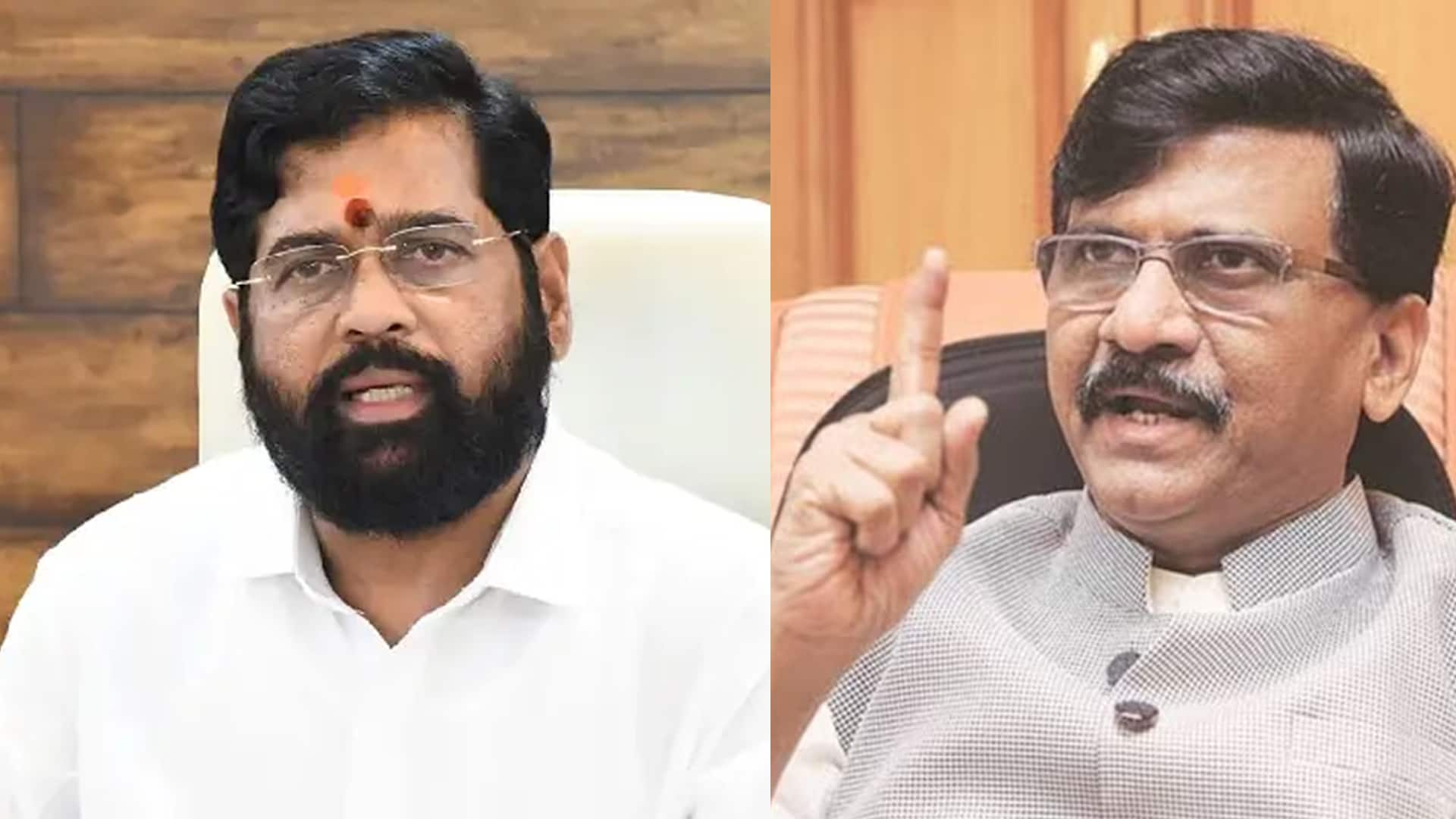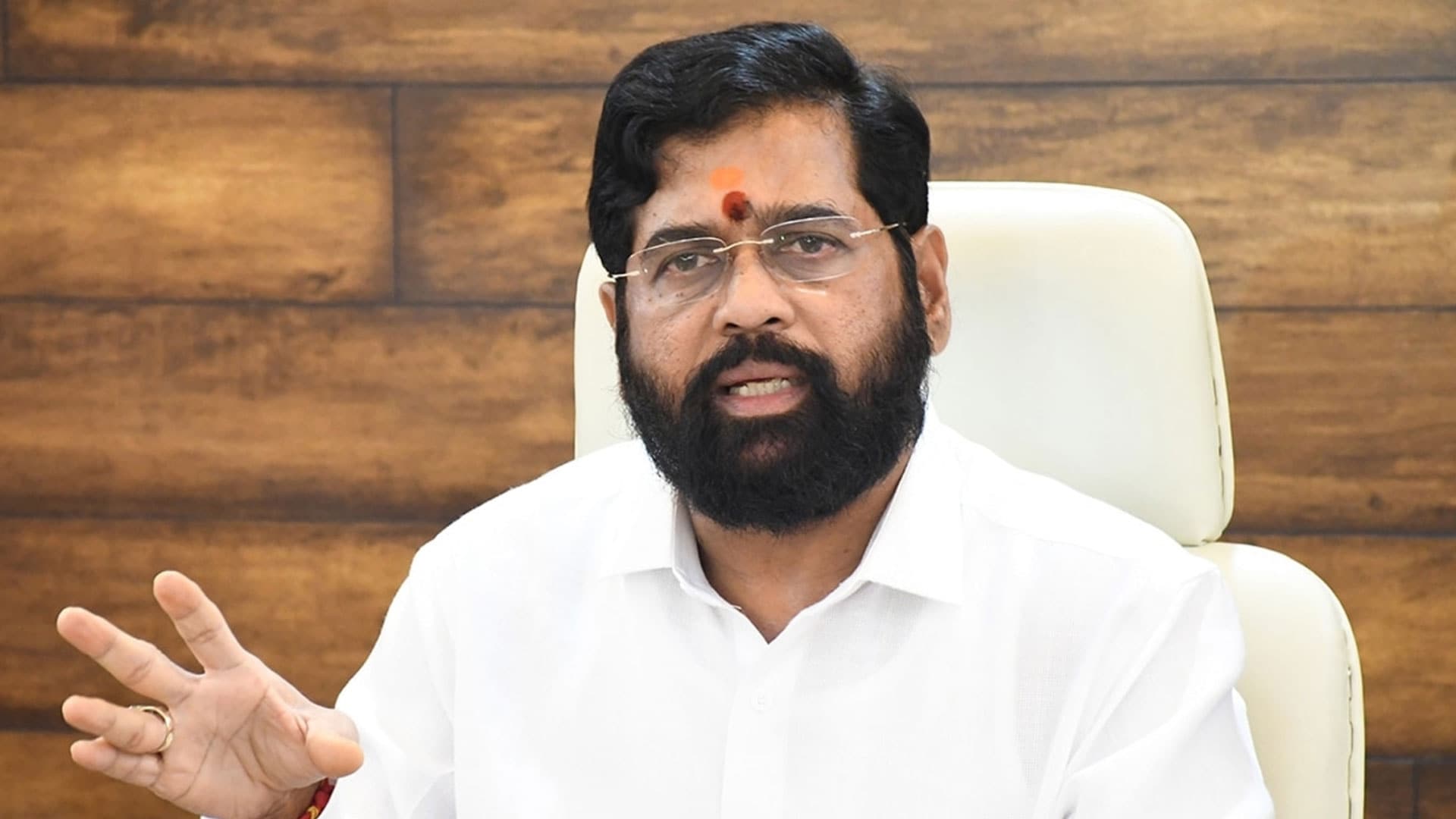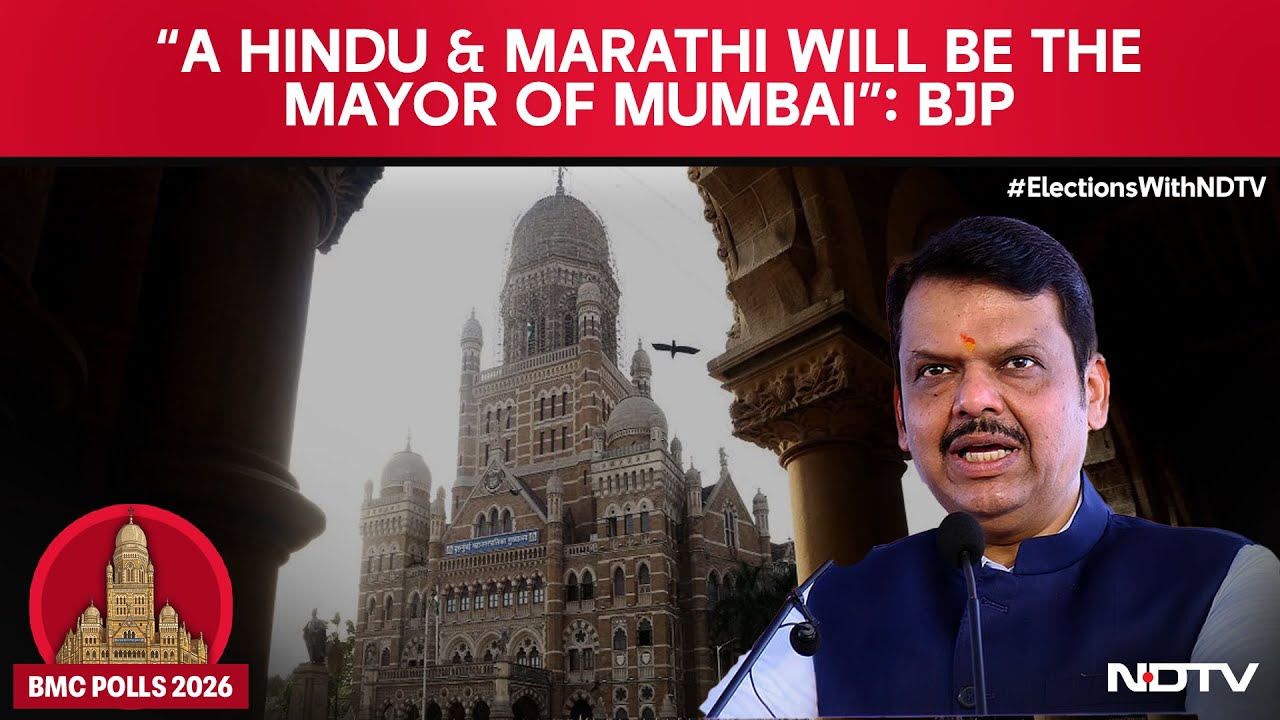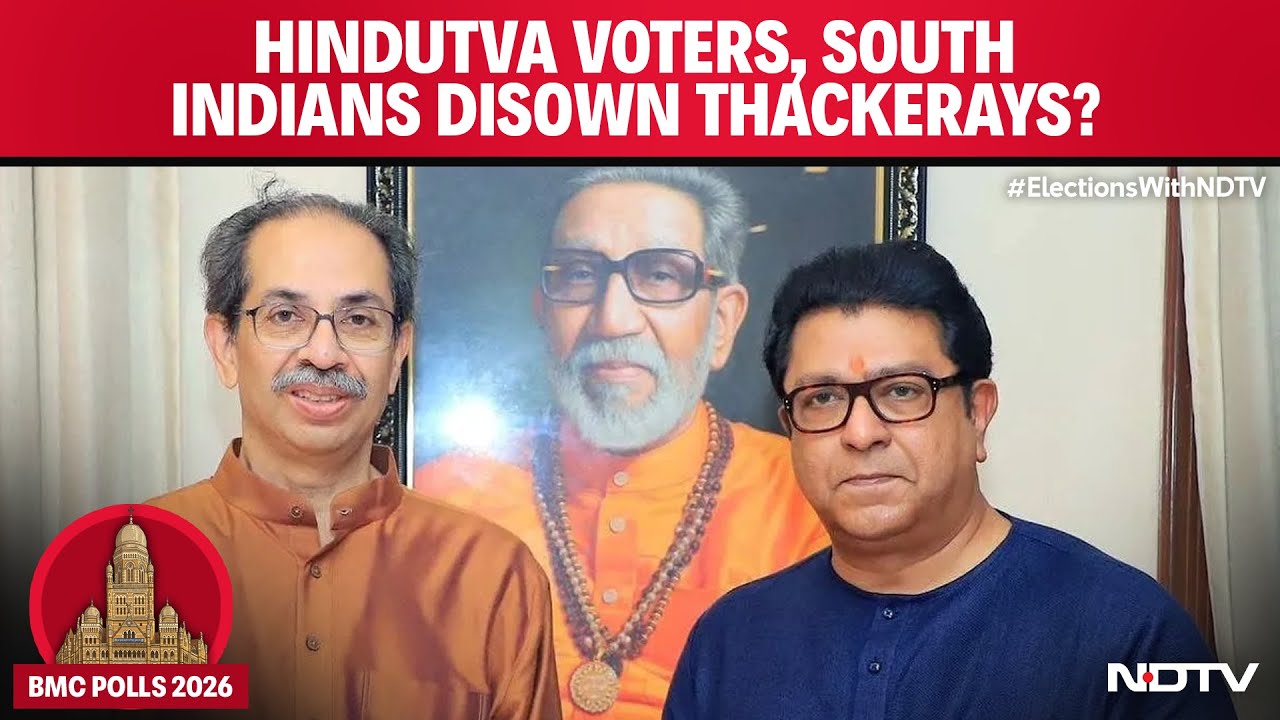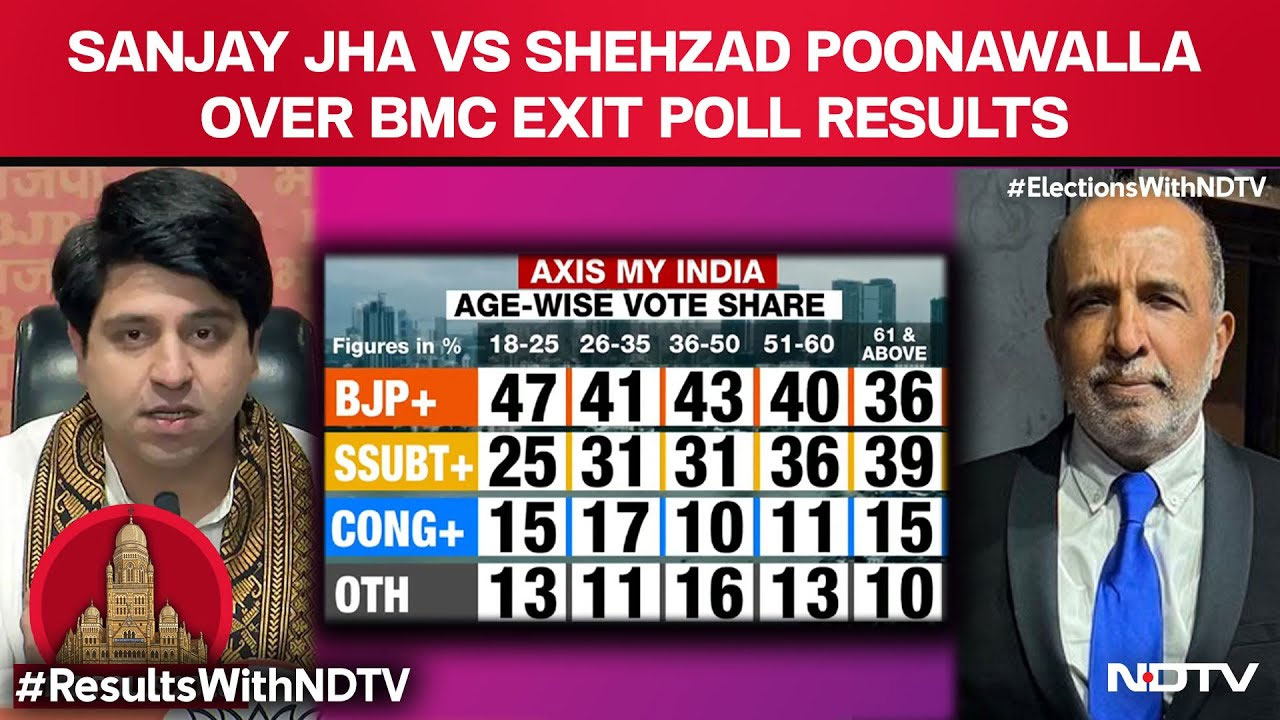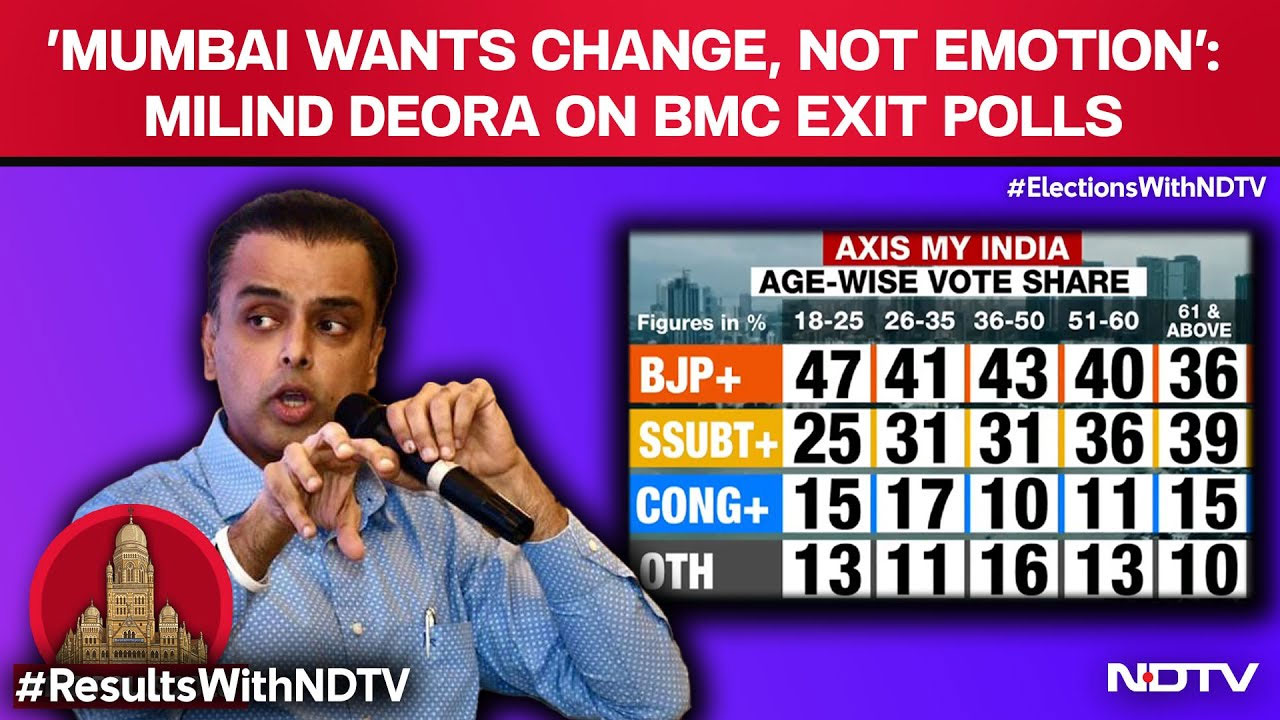Walk The Talk With BJP National General Secretary Ram Madhav
In the Walk The Talk episode this week, Ram Madhav tells Shekhar Gupta that how working in the RSS was more fun and working with BJP is a challenge. He further talks about his transition from an RSS member to the National General Secretary of the Bharatiya Janata Party. In the show, he candidly expresses his opinions on various issues from the strained BJP-PDP partnership in Jammu and Kashmir to India and Pakistan's border altercations, the curbing of freedom of expression by cow vigilantes or by MNS and on a humorous note on the change of RSS uniform.
Following is the full transcript of the show:
Shekhar Gupta: Hello and welcome to Walk The Talk. I am Shekhar Gupta and it is my very special privilege to introduce a very special guest today, Ram Madhav ji. How do I introduce you, General Secretary of the BJP, Ambassador of the RSS in the BJP, the best friend of all of us for very long time on behalf of the RSS in Delhi or the most modern face of the RSS?
Ram Madhav: No, right now I hold the post of the General Secretary of the BJP, I think that is the most appropriate description.
Shekhar Gupta: Right, but what is the association that you have enjoyed most, working for the RSS or now working for the BJP?
Ram Madhav: Working for the BJP is always a challenge. That I realised two years down the line. Working in RSS was always more homely, more comfortable. It was fun. Here is a challenge but I love this challenge also, obviously.
Shekhar Gupta: But this challenge how?
Ram Madhav: Politics is a totally different ball game and we, as people trained in RSS for so many years, for us to get adjusted to the kind of environment you encounter here in politics
Shekhar Gupta: Many compromises to make in politics?
Ram Madhav: I try not to make any compromise but the atmosphere is definitely more demanding and pressurising.
Shekhar Gupta: Have you made any compromise lately, I mean you knew it was comprise but in the larger interest you had to?
Ram Madhav: Not really. Whatever big things I was asked to handle in last few years were challenging, whether it was Kashmir or it was handling North Eastern issues, but we have not made any compromises. Although on Kashmir many people have criticised me, with the Parivaar, with the organisation for the alliance and all, but I stand my ground even today without any compromises.
Shekhar Gupta: What do you tell them when people say that PDP and BJP are completely opposite ideologies? How can they come together? This is a compromise.
Ram Madhav: Oh yes, we have agreed in our common minimum programme that ideologically we are poles apart and we do not see eye to eye. But we came together in a given political situation and we came together in the larger interest of giving a good government in the state; knowing well that in ideology we stand apart, I mean 180 degrees apart.
Shekhar Gupta: So you can take a lesson from Deng Xiaoping that leave the most complicated issue for a wiser generation and deal with what you can do now
Ram Madhav: In politics, pragmatism is very important and what is the best that you can do to your state or country in the given situation is what you should look at.
Shekhar Gupta: But you think, given this contradiction, is this alliance sustainable for 6 years?
Ram Madhav: I think in the last one and a half years, both the parties have come to understand each other better. I am not saying either of us having given their long held position or something but working together. Our chemistry has definitely improved. I am sure the government will last 6 years.
Shekhar Gupta: So what is the difference in dealing between late Mr Mufti and his daughter?
Ram Madhav: You see two different individuals. In personal space they were different.
Shekhar Gupta: Describe them personally since you dealt with them personally too
Ram Madhav: I would say Mufti Sahib was definitely much more experienced in politics. That doesn't mean I am saying Mehbooba is inexperienced. But being in the government, he had more experience in running the government. Mehbooba ji in the last 6 months has shown tremendous ability to know, grasp and understand things. Otherwise, our comfort level is and has been with both of them.
Shekhar Gupta: You know you saw Mehbooba being asked a question in Delhi at a tourism conference, where she got upset, basically an Aam Aadmi Party member asking her if she will come up to BJP-RSS level of nationalism and call Burhan Wani a terrorist etc. What was your feeling then?
Ram Madhav: Mehbooba ji has faced similar situations in last few months and she has handled it with great maturity. I think on these issues she has great clarity in her mind. She has no ambiguity. As a Chief Minister, she has to take care of law and order but she also has to take care of sentiments of 6 million people of the state.
Shekhar Gupta: But you don't insist that stand up and say Bharat mata ki jai or say Burhan Wani is a terrorist?
Ram Madhav: You cannot put people on a daily patriotism test. You can't every day ask them to prove their patriotism.
Shekhar Gupta: It's the first time I am hearing this from a senior leader of BJP and that too an RSS man
Ram Madhav: Maybe it's my personal view.
Shekhar Gupta: Do you think Mehbooba has the patience and skill needed to handle this situation?
Ram Madhav: It's a difficult situation. I have been talking to her. We have had our differences but we have a fairly good working relationship. Initially in the first month we had a different view on how to handle the situation but as Chief Minister, she had a different view. Naturally Chief Ministers' views prevail. But subsequently the central government and the state administration, the state police could come to a broader understanding and I think since then the things have definitely improved.
Shekhar Gupta: There are worries. For example the ease with which J&K police are using weapons. To use 5 or 6 AKs without any resistance, that sounds not convincing
Ram Madhav: These are some challenges that we face in South Kashmir. But I agree that it's a worrying thing in South Kashmir.
Shekhar Gupta: Will you accept or will you not accept right now that we have lost the Valley's trust for now?
Ram Madhav: No, I don't agree because I have been closely monitoring the agitations, also stone pelting and all those things. There is definitely a pattern. But to say that we have lost the Valley is definitely exaggerating the thing. I have seen at least 7 to 8 calls given by the separatist leaders to ordinary people and none of them were successful. But then yes, if there is an effort to mobilise 20 people or 50 youngsters to throw stones and all and that is a success, then that makes the news.
Shekhar Gupta: Stone pelting is one issue and then in the middle of all this came Uri. What followed is now being called as surgical strike. This also followed a tweet from you. No strategic restraint. If Uri was a tooth, have you now got your jaw?
Ram Madhav: See what I meant was that now we have to go all out and use multiple options to teach Pakistan a very strong lesson. More importantly, make terrorism a costly affair for them. It is and it has been a very cheap option for them. No costs are involved. So what I meant was that at one level, I was reflecting the sentiments of the people of this country. And secondly yes, that was our strong view that we should teach Pakistan a strong lesson. You saw even in Goa, two days ago, the government tried to impress upon the participating countries in BRICS that we have a neighbour, which was described as mothership of terror. We are going all out to tell the world that this is not just our problem but a global menace. We have used diplomatic options. We have used military options.
Shekhar Gupta: So how effective was military decision? That's why I said is it a job for the truth? I am not saying 32 types 19...
Ram Madhav: No, no, that is a very poor understanding of the statement. I am saying job for tooth meant we go all out. We won't just do something and keep still. We will sustain the pressure. We will try and ensure that Pakistan changes and mends its way. To that extent, yes, I feel that government is continuing its efforts otherwise the instance happened sometime ago. There was a surgical strike, there was a military retaliation also and whatever we had to say we said effectively to convey to the larger world about our strong position. We all could have kept quiet, but no we are sustaining the pressure. That is what I meant, going all out. I think it will bring results, that is what we see in Pakistan media.
Shekhar Gupta: This is not mending the Pakistani, ISI, Army complex behaviour because attacks are still done on Kashmir. Any of them could have become a serious attack and there is no guarantee, in fact every indication is this will not mend. So will this now start an incident, escalation, incident, retaliation, attack, retaliation, attack, retaliation, escalation cycle?
Ram Madhav: We do not fund escalation, that's why you have seen evening military retaliation. It was a very limited, calibrated, surgical attack only on the launching pads of terrorists.
Shekhar Gupta: But do you think the use of the word surgical is justified, in terms of surgical attack, because there is a lot of discussion on that?
Ram Madhav: No, the surgical strike is a word that military uses on such occasions, it's something else that somebody has invented it. It's a very calibrated, very targeted kind of operation that was undertaken. See, but the larger question you are asking about Pakistan. I am sure you know what Stephen Cohen said. He said it is Army, Allah and America. Now you are able to tackle America, it's Army, Allah, China. How do you handle it?
Shekhar Gupta: I will tell you something about Stephen Cohen. Stephen Cohen says that Pakistanis negotiate with the rest of the world by putting guns to their own heads. Either you agree with me, or I am blowing my head out
Ram Madhav: Like he said, two neighbours, Pakistan and China, difficult neighbours and we have to have perseverance how to be a little, what would I say, you have to be innovative in handling the situations. There are no readymade solutions to handling situations with these countries. You have to be mature, inventive, advanced undoubtedly
Shekhar Gupta: Do you still see the possibility of a peaceful settlement with Pakistan going ahead?
Ram Madhav: We always wanted it.
Shekhar Gupta: But it's still not given up?
Ram Madhav: No of course peaceful, friendly neighbour is always what we want because the stakes are much higher for India. We can't be having a perpetual war on our borders and expect India to be a rich, prosperous, progressive country. So the stakes are very high for us.
Shekhar Gupta: That was the reason some of us were strongly supporting the India-Bangladesh agreement?
Ram Madhav: Oh yes. I mean the Prime minister has been trying to strengthen the relations with all neighbours including Pakistan. I mean the sincere efforts that the PM has made in the first year, probably a few months ago. You cannot question the intentions of our government.
Shekhar Gupta: So will you still go by the statement Mr Vajpayee made when he climbed up in Pakistan, in Lahore and he said a stable, prosperous Pakistan is in India's long-term interest?
Ram Madhav: What I am prepared to say is a Pakistan, which is not unfriendly with India, is in our interest and is definitely in a larger interest of the sub-continent and the world.
Shekhar Gupta: And is India happy with the stable, what has to be done with its own people?
Ram Madhav: Pakistan has to think. It has seen so much of internal bloodshed, internal strife, it's not there in any other country. Who was responsible for the creation of Bangladesh? It's their own people, their own Army rulers. So what should be the shape of Pakistan? What should be the internal shape of Pakistan is Pakistan's problem. As far as India is concerned, we need a neighbour, which is not unfriendly.
Shekhar Gupta: Just don't be a problem for me
Ram Madhav: Of course, I mean we wish all neighbours well.
Shekhar Gupta: And if you are happy without being a problem to me, I am happy for you
Ram Madhav: Of course.
Shekhar Gupta: So in this whole Pakistan-China thing, since we mentioned several times now, we have seen BRICS. Did we go out on a limb trying to bring the focus on Pakistan? Or lets put it differently, India spent 2.5 decades since the end of the cold war, since the cold war began to end, to completely de-hyphenate our relationship with America. That means de-hyphenate Pakistan from it or are we now re-hyphenating Pakistan with China, Russia, Nepal, Bhutan, Bangladesh?
Ram Madhav: No, I look at it slight differently. In the last couple of years, we have succeeded in de-hyphenating our relationship with Pakistan. In the sunset everything you do to be seen in Pakistan's prism, at least we try to get out of it. We made friends with big countries. Even with China our relationship has been increased. The world has started looking at us differently.
Shekhar Gupta: But now we are constantly demanding that they blame Pakistan. We look like a small country
Ram Madhav: No, we don't look like a small country. I appreciate the fact that you are re-hyphenating the whole thing, I mean bringing it down to India-Pakistan
Shekhar Gupta: Why does India let Pakistan determine its stature visibility to the rest of the world?
Ram Madhav: No that's fine. Having decided to ensure that Pakistan gives up its state policy of terror, probably we have to take the risk of hyphenated but probably it has to be taken to the logical end having launched it.
Shekhar Gupta: It hasn't worked in Goa
Ram Madhav: No, it hasn't worked means we have tried to highlight the problem. I think largely we have tried to put an end to our viewpoint effectively in bilateral talks and all the leaders have agreed with us. We could have wanted these two words to be included in the statement, I mean in the BRICS statement. Probably we would have been happier had we seen the names of our two undesignated terror groups finding place in that. Nevertheless, the statement did say that, you know, such terror activities in the region is the phrase we used.
Shekhar Gupta: Chinese are not talking of the root cause of terrorism, which is not something India likes
Ram Madhav: No, no, they will pay for it. You see terror is a hurdle today for China, same root cause theory they will answer tomorrow they will be forced to answer that theory in Xian Jiang, in Tibet, in places elsewhere, they will be asked this same dubious theory of root cause. We have heard this theory so many times, the very dubious theory of root cause. We have heard this theory so many times in India.
Shekhar Gupta: We have heard this theory so much from the Americans
Ram Madhav: Oh yes, if Chinese want to use this theory they will face it.
Shekhar Gupta: And frankly if you look at CPEC, CPEC will be a pro-economic sense unless there is normalization in India. Because unless there is cross Central Asia, South Asia traffic, who will use CPEC? CPEC will go to Kashkar?
Ram Madhav: CPEC is the China-Pakistan project. Let them think whether it really helps them. But as long as it passes through our territory, we have objections to it. Now whether it makes economic sense, but who are we to talk about it, it's their project, but if it passes through PoK, Kashmir, then we have a view on that.
Shekhar Gupta: So today India's policy. I know that you are not in the government but you are in the ruling party. Would you tweak it in some way, what's your editorial advice on India's foreign policy vis-a-vis Pakistan, vis-a-vis the rest of the world, hyphenated with Pakistan, we are intellectuals?
Ram Madhav: I think we have done very well in the last two years in foreign policy. India's stature has gone up. India's views are heard with much more seriousness and our sincerity and purpose has been appreciated. Having said this I, as an individual who closely looks at the foreign policy, foreign international developments and all, I am definitely slightly worried over the neighborhood. Pakistan is definitely a disappointment in the last couple of years. In spite of our best efforts we could not move much progress over Pakistan. But also I am slightly concerned about our general neighborhood. Probably we have to revise, revisit our strategy with our neighbours.
Shekhar Gupta: Which ones in particular?
Ram Madhav: Generally, whether it is Bangladesh or Nepal or Sri Lanka, these all are friendly neighbours. I mean the countries, which identify with India on many issues, they see some kind of a bond also.
Shekhar Gupta: Between us and some of the neighborhood is another area of your interest. We started this conversation by asking if you had to make compromises in politics. First of all congratulations, that you have got presence in another state in North East, in Arunachal Pradesh. Polls are showing that you are doing very well in Manipur. Have you made compromises for this larger move into North East, beef for example?
Ram Madhav: Yes, in North East there are certain issues. In North East, we have to understand local needs and local sentiments. For example, there are no cows in Arunachal Pradesh, so it is different in every state.
Shekhar Gupta: The Goa Doctrine is being followed. Your Chief Minister in Goa keeps saying that nobody slaughters a cow to offend anyone, it's a part of people's lifestyle.
Ram Madhav: As I said that each issue and each state acquires different nuances and different kind of importance.
Shekhar Gupta: So how much time does Kashmir take now and how much time goes to North East?
Ram Madhav: In Kashmir we have a stable government running well, apart from the problem in the last few months. In North East we have challenges; we have states where BJP wants to capture power. We have elections in at least 1 state every year in the coming 2-3 years.
Shekhar Gupta: In the middle of all this, how do you find time for your think tank, India Foundation?
Ram Madhav: I don't call India Foundation think tank actually, I call it do tank. In India we will find more acceptance for think tank in coming years, right now it's in a nascent stage.
Shekhar Gupta: But it should not be nutty right or Donald Trump right, it should be Niall Ferguson right
Ram Madhav: Actually in my personal view, I do not believe in Left, Right or Centre. It's about national interest. There, if someone is ideologically committed to the Left but on issues he is with you, there should be space.
Shekhar Gupta: I believe the Defence Minister goes for this Goa thing, Dalai Lama is coming, Sher Bahadur Deuba is coming. Many senior global leaders are also coming
Ram Madhav: Yes, many senior leaders are coming. Also we focus on counter terrorism.
Shekhar Gupta: You just had one in Singapore as well?
Ram Madhav: That was Indian Ocean Conference we hosted. I think these are all very useful initiatives for our country and definitely for our movement.
Shekhar Gupta: Uttar Pradesh elections are coming up and we talk on a day when your Tourism Minister has gone to Ayodhya and he wants to set up a wonderful museum for Lord Ram...
Ram Madhav: ...for which land is being given by the UP government
Shekhar Gupta: In fact, the UP government has said that Ayodhya should be a big tourist destination. So is this the beginning of big Ayodhya politics in UP?
Ram Madhav: No, are we saying that Tourism Minister should not go to Ayodhya. You see there has been a proposal to develop Ayodhya as a major tourist destination. Ayodhya is a highly respected place. If towards that the state and central government work towards a good project, why should it be seen from a very narrow electoral political prism? It should not be. At least from our side, we are not looking at it like that. In fact, Minister Mahesh Sharma has made it clear that don't see politics in it. It's only about developing a tourist destination.
Shekhar Gupta: Before I let you go, if I could get you back in your RSS uniform, in your trousers. The Prime Minister has also said that he is very angry with gau rakshaks who take the law into their own hands. There is a lot of vigilantism going on. Why is the RSS not able to stop it?
Ram Madhav: Gau Raksha and vigilantism are two different things. We should not equate every gau rakshak with vigilantism who is going after people. That distinction is very important. There are large number of well-meaning people who dedicate their lives to protecting cattle, cow and all. It's a very noble thing. As far as vigilantism is concerned in the sense taking law in one's hand, whoever does it, it must be opposed and PM has made that very clear. Don't take things into your hand, let the establishment do it. If it's not doing, then put pressure on them.
Shekhar Gupta: One MNS with just one MLA and I am sorry to say this but just a bunch of thugs, I mean you are not saying it, I am saying it so the risk is mine. They can say no Pakistani actor and suddenly everybody freezes. Isn't it the responsibility of the state to come up and protect those to whom the state has given visas because Home ministry has made it clear that they haven't denied visas to anybody
Ram Madhav: No, people when they have strong sentiments, when they express it, you cannot deny them that. But a line has to be drawn and law and order machinery has to act. The government also said that we are not denying visas to anybody. But if filmmakers do not want them, if film-goers do not want to see them, then if a small political group wants to express it in a rude way and all then....
Shekhar Gupta: Do you have any advice for Raj Thackeray?
Ram Madhav: Who am I? But my simple point is, vigilantism, using violence as a means to settle scores should be desisted by everybody much more importantly by political parties.
Shekhar Gupta: Vandalism is wrong.
Ram Madhav: Vandalism is never accepted but you don't put a ban on views.
Shekhar Gupta: You can have any views or any uniform. So this change from shorts to trousers - is this change just sartorial or is there more to it?
Ram Madhav: Except for comfort, nothing else. Even today if you go to a RSS shakha, even though uniform has changed, they are more comfortable in shorts because of the exercises we do.
Shekhar Gupta: But it is chikungunya unfriendly.
Ram Madhav: So in many places they wear inners. It is all a matter of convenience. It is so interesting that RSS knickers and are now full pants is international news on New York Times.
Shekhar Gupta: When did you first start discussing this change?
Ram Madhav: Several years ago but that is the beauty of RSS, it can't be pressurised by any outside thing. As I said, it is a matter of comfort. Uniform should suit the activity. You can't wear jeans and play football. Boy and girls wear shorts.
Shekhar Gupta: Unless you are the Iranian women's football team.
Ram Madhav: Maybe somebody is playing tennis in burqa, I don't know.
Shekhar Gupta: One more thing, if I had to give the Sarsanghchalak by sort of cheeky advice, great thing by modernising the dress waist below, now a little bit focus on the waistline. Thank you very much for such a brilliant conversation.
Ram Madhav: Thank you.
Following is the full transcript of the show:
Shekhar Gupta: Hello and welcome to Walk The Talk. I am Shekhar Gupta and it is my very special privilege to introduce a very special guest today, Ram Madhav ji. How do I introduce you, General Secretary of the BJP, Ambassador of the RSS in the BJP, the best friend of all of us for very long time on behalf of the RSS in Delhi or the most modern face of the RSS?
Ram Madhav: No, right now I hold the post of the General Secretary of the BJP, I think that is the most appropriate description.
Shekhar Gupta: Right, but what is the association that you have enjoyed most, working for the RSS or now working for the BJP?
Ram Madhav: Working for the BJP is always a challenge. That I realised two years down the line. Working in RSS was always more homely, more comfortable. It was fun. Here is a challenge but I love this challenge also, obviously.
Shekhar Gupta: But this challenge how?
Ram Madhav: Politics is a totally different ball game and we, as people trained in RSS for so many years, for us to get adjusted to the kind of environment you encounter here in politics
Shekhar Gupta: Many compromises to make in politics?
Ram Madhav: I try not to make any compromise but the atmosphere is definitely more demanding and pressurising.
Shekhar Gupta: Have you made any compromise lately, I mean you knew it was comprise but in the larger interest you had to?
Ram Madhav: Not really. Whatever big things I was asked to handle in last few years were challenging, whether it was Kashmir or it was handling North Eastern issues, but we have not made any compromises. Although on Kashmir many people have criticised me, with the Parivaar, with the organisation for the alliance and all, but I stand my ground even today without any compromises.
Shekhar Gupta: What do you tell them when people say that PDP and BJP are completely opposite ideologies? How can they come together? This is a compromise.
Ram Madhav: Oh yes, we have agreed in our common minimum programme that ideologically we are poles apart and we do not see eye to eye. But we came together in a given political situation and we came together in the larger interest of giving a good government in the state; knowing well that in ideology we stand apart, I mean 180 degrees apart.
Shekhar Gupta: So you can take a lesson from Deng Xiaoping that leave the most complicated issue for a wiser generation and deal with what you can do now
Ram Madhav: In politics, pragmatism is very important and what is the best that you can do to your state or country in the given situation is what you should look at.
Shekhar Gupta: But you think, given this contradiction, is this alliance sustainable for 6 years?
Ram Madhav: I think in the last one and a half years, both the parties have come to understand each other better. I am not saying either of us having given their long held position or something but working together. Our chemistry has definitely improved. I am sure the government will last 6 years.
Shekhar Gupta: So what is the difference in dealing between late Mr Mufti and his daughter?
Ram Madhav: You see two different individuals. In personal space they were different.
Shekhar Gupta: Describe them personally since you dealt with them personally too
Ram Madhav: I would say Mufti Sahib was definitely much more experienced in politics. That doesn't mean I am saying Mehbooba is inexperienced. But being in the government, he had more experience in running the government. Mehbooba ji in the last 6 months has shown tremendous ability to know, grasp and understand things. Otherwise, our comfort level is and has been with both of them.
Shekhar Gupta: You know you saw Mehbooba being asked a question in Delhi at a tourism conference, where she got upset, basically an Aam Aadmi Party member asking her if she will come up to BJP-RSS level of nationalism and call Burhan Wani a terrorist etc. What was your feeling then?
Ram Madhav: Mehbooba ji has faced similar situations in last few months and she has handled it with great maturity. I think on these issues she has great clarity in her mind. She has no ambiguity. As a Chief Minister, she has to take care of law and order but she also has to take care of sentiments of 6 million people of the state.
Shekhar Gupta: But you don't insist that stand up and say Bharat mata ki jai or say Burhan Wani is a terrorist?
Ram Madhav: You cannot put people on a daily patriotism test. You can't every day ask them to prove their patriotism.
Shekhar Gupta: It's the first time I am hearing this from a senior leader of BJP and that too an RSS man
Ram Madhav: Maybe it's my personal view.
Shekhar Gupta: Do you think Mehbooba has the patience and skill needed to handle this situation?
Ram Madhav: It's a difficult situation. I have been talking to her. We have had our differences but we have a fairly good working relationship. Initially in the first month we had a different view on how to handle the situation but as Chief Minister, she had a different view. Naturally Chief Ministers' views prevail. But subsequently the central government and the state administration, the state police could come to a broader understanding and I think since then the things have definitely improved.
Shekhar Gupta: There are worries. For example the ease with which J&K police are using weapons. To use 5 or 6 AKs without any resistance, that sounds not convincing
Ram Madhav: These are some challenges that we face in South Kashmir. But I agree that it's a worrying thing in South Kashmir.
Shekhar Gupta: Will you accept or will you not accept right now that we have lost the Valley's trust for now?
Ram Madhav: No, I don't agree because I have been closely monitoring the agitations, also stone pelting and all those things. There is definitely a pattern. But to say that we have lost the Valley is definitely exaggerating the thing. I have seen at least 7 to 8 calls given by the separatist leaders to ordinary people and none of them were successful. But then yes, if there is an effort to mobilise 20 people or 50 youngsters to throw stones and all and that is a success, then that makes the news.
Shekhar Gupta: Stone pelting is one issue and then in the middle of all this came Uri. What followed is now being called as surgical strike. This also followed a tweet from you. No strategic restraint. If Uri was a tooth, have you now got your jaw?
Ram Madhav: See what I meant was that now we have to go all out and use multiple options to teach Pakistan a very strong lesson. More importantly, make terrorism a costly affair for them. It is and it has been a very cheap option for them. No costs are involved. So what I meant was that at one level, I was reflecting the sentiments of the people of this country. And secondly yes, that was our strong view that we should teach Pakistan a strong lesson. You saw even in Goa, two days ago, the government tried to impress upon the participating countries in BRICS that we have a neighbour, which was described as mothership of terror. We are going all out to tell the world that this is not just our problem but a global menace. We have used diplomatic options. We have used military options.
Shekhar Gupta: So how effective was military decision? That's why I said is it a job for the truth? I am not saying 32 types 19...
Ram Madhav: No, no, that is a very poor understanding of the statement. I am saying job for tooth meant we go all out. We won't just do something and keep still. We will sustain the pressure. We will try and ensure that Pakistan changes and mends its way. To that extent, yes, I feel that government is continuing its efforts otherwise the instance happened sometime ago. There was a surgical strike, there was a military retaliation also and whatever we had to say we said effectively to convey to the larger world about our strong position. We all could have kept quiet, but no we are sustaining the pressure. That is what I meant, going all out. I think it will bring results, that is what we see in Pakistan media.
Shekhar Gupta: This is not mending the Pakistani, ISI, Army complex behaviour because attacks are still done on Kashmir. Any of them could have become a serious attack and there is no guarantee, in fact every indication is this will not mend. So will this now start an incident, escalation, incident, retaliation, attack, retaliation, attack, retaliation, escalation cycle?
Ram Madhav: We do not fund escalation, that's why you have seen evening military retaliation. It was a very limited, calibrated, surgical attack only on the launching pads of terrorists.
Shekhar Gupta: But do you think the use of the word surgical is justified, in terms of surgical attack, because there is a lot of discussion on that?
Ram Madhav: No, the surgical strike is a word that military uses on such occasions, it's something else that somebody has invented it. It's a very calibrated, very targeted kind of operation that was undertaken. See, but the larger question you are asking about Pakistan. I am sure you know what Stephen Cohen said. He said it is Army, Allah and America. Now you are able to tackle America, it's Army, Allah, China. How do you handle it?
Shekhar Gupta: I will tell you something about Stephen Cohen. Stephen Cohen says that Pakistanis negotiate with the rest of the world by putting guns to their own heads. Either you agree with me, or I am blowing my head out
Ram Madhav: Like he said, two neighbours, Pakistan and China, difficult neighbours and we have to have perseverance how to be a little, what would I say, you have to be innovative in handling the situations. There are no readymade solutions to handling situations with these countries. You have to be mature, inventive, advanced undoubtedly
Shekhar Gupta: Do you still see the possibility of a peaceful settlement with Pakistan going ahead?
Ram Madhav: We always wanted it.
Shekhar Gupta: But it's still not given up?
Ram Madhav: No of course peaceful, friendly neighbour is always what we want because the stakes are much higher for India. We can't be having a perpetual war on our borders and expect India to be a rich, prosperous, progressive country. So the stakes are very high for us.
Shekhar Gupta: That was the reason some of us were strongly supporting the India-Bangladesh agreement?
Ram Madhav: Oh yes. I mean the Prime minister has been trying to strengthen the relations with all neighbours including Pakistan. I mean the sincere efforts that the PM has made in the first year, probably a few months ago. You cannot question the intentions of our government.
Shekhar Gupta: So will you still go by the statement Mr Vajpayee made when he climbed up in Pakistan, in Lahore and he said a stable, prosperous Pakistan is in India's long-term interest?
Ram Madhav: What I am prepared to say is a Pakistan, which is not unfriendly with India, is in our interest and is definitely in a larger interest of the sub-continent and the world.
Shekhar Gupta: And is India happy with the stable, what has to be done with its own people?
Ram Madhav: Pakistan has to think. It has seen so much of internal bloodshed, internal strife, it's not there in any other country. Who was responsible for the creation of Bangladesh? It's their own people, their own Army rulers. So what should be the shape of Pakistan? What should be the internal shape of Pakistan is Pakistan's problem. As far as India is concerned, we need a neighbour, which is not unfriendly.
Shekhar Gupta: Just don't be a problem for me
Ram Madhav: Of course, I mean we wish all neighbours well.
Shekhar Gupta: And if you are happy without being a problem to me, I am happy for you
Ram Madhav: Of course.
Shekhar Gupta: So in this whole Pakistan-China thing, since we mentioned several times now, we have seen BRICS. Did we go out on a limb trying to bring the focus on Pakistan? Or lets put it differently, India spent 2.5 decades since the end of the cold war, since the cold war began to end, to completely de-hyphenate our relationship with America. That means de-hyphenate Pakistan from it or are we now re-hyphenating Pakistan with China, Russia, Nepal, Bhutan, Bangladesh?
Ram Madhav: No, I look at it slight differently. In the last couple of years, we have succeeded in de-hyphenating our relationship with Pakistan. In the sunset everything you do to be seen in Pakistan's prism, at least we try to get out of it. We made friends with big countries. Even with China our relationship has been increased. The world has started looking at us differently.
Shekhar Gupta: But now we are constantly demanding that they blame Pakistan. We look like a small country
Ram Madhav: No, we don't look like a small country. I appreciate the fact that you are re-hyphenating the whole thing, I mean bringing it down to India-Pakistan
Shekhar Gupta: Why does India let Pakistan determine its stature visibility to the rest of the world?
Ram Madhav: No that's fine. Having decided to ensure that Pakistan gives up its state policy of terror, probably we have to take the risk of hyphenated but probably it has to be taken to the logical end having launched it.
Shekhar Gupta: It hasn't worked in Goa
Ram Madhav: No, it hasn't worked means we have tried to highlight the problem. I think largely we have tried to put an end to our viewpoint effectively in bilateral talks and all the leaders have agreed with us. We could have wanted these two words to be included in the statement, I mean in the BRICS statement. Probably we would have been happier had we seen the names of our two undesignated terror groups finding place in that. Nevertheless, the statement did say that, you know, such terror activities in the region is the phrase we used.
Shekhar Gupta: Chinese are not talking of the root cause of terrorism, which is not something India likes
Ram Madhav: No, no, they will pay for it. You see terror is a hurdle today for China, same root cause theory they will answer tomorrow they will be forced to answer that theory in Xian Jiang, in Tibet, in places elsewhere, they will be asked this same dubious theory of root cause. We have heard this theory so many times, the very dubious theory of root cause. We have heard this theory so many times in India.
Shekhar Gupta: We have heard this theory so much from the Americans
Ram Madhav: Oh yes, if Chinese want to use this theory they will face it.
Shekhar Gupta: And frankly if you look at CPEC, CPEC will be a pro-economic sense unless there is normalization in India. Because unless there is cross Central Asia, South Asia traffic, who will use CPEC? CPEC will go to Kashkar?
Ram Madhav: CPEC is the China-Pakistan project. Let them think whether it really helps them. But as long as it passes through our territory, we have objections to it. Now whether it makes economic sense, but who are we to talk about it, it's their project, but if it passes through PoK, Kashmir, then we have a view on that.
Shekhar Gupta: So today India's policy. I know that you are not in the government but you are in the ruling party. Would you tweak it in some way, what's your editorial advice on India's foreign policy vis-a-vis Pakistan, vis-a-vis the rest of the world, hyphenated with Pakistan, we are intellectuals?
Ram Madhav: I think we have done very well in the last two years in foreign policy. India's stature has gone up. India's views are heard with much more seriousness and our sincerity and purpose has been appreciated. Having said this I, as an individual who closely looks at the foreign policy, foreign international developments and all, I am definitely slightly worried over the neighborhood. Pakistan is definitely a disappointment in the last couple of years. In spite of our best efforts we could not move much progress over Pakistan. But also I am slightly concerned about our general neighborhood. Probably we have to revise, revisit our strategy with our neighbours.
Shekhar Gupta: Which ones in particular?
Ram Madhav: Generally, whether it is Bangladesh or Nepal or Sri Lanka, these all are friendly neighbours. I mean the countries, which identify with India on many issues, they see some kind of a bond also.
Shekhar Gupta: Between us and some of the neighborhood is another area of your interest. We started this conversation by asking if you had to make compromises in politics. First of all congratulations, that you have got presence in another state in North East, in Arunachal Pradesh. Polls are showing that you are doing very well in Manipur. Have you made compromises for this larger move into North East, beef for example?
Ram Madhav: Yes, in North East there are certain issues. In North East, we have to understand local needs and local sentiments. For example, there are no cows in Arunachal Pradesh, so it is different in every state.
Shekhar Gupta: The Goa Doctrine is being followed. Your Chief Minister in Goa keeps saying that nobody slaughters a cow to offend anyone, it's a part of people's lifestyle.
Ram Madhav: As I said that each issue and each state acquires different nuances and different kind of importance.
Shekhar Gupta: So how much time does Kashmir take now and how much time goes to North East?
Ram Madhav: In Kashmir we have a stable government running well, apart from the problem in the last few months. In North East we have challenges; we have states where BJP wants to capture power. We have elections in at least 1 state every year in the coming 2-3 years.
Shekhar Gupta: In the middle of all this, how do you find time for your think tank, India Foundation?
Ram Madhav: I don't call India Foundation think tank actually, I call it do tank. In India we will find more acceptance for think tank in coming years, right now it's in a nascent stage.
Shekhar Gupta: But it should not be nutty right or Donald Trump right, it should be Niall Ferguson right
Ram Madhav: Actually in my personal view, I do not believe in Left, Right or Centre. It's about national interest. There, if someone is ideologically committed to the Left but on issues he is with you, there should be space.
Shekhar Gupta: I believe the Defence Minister goes for this Goa thing, Dalai Lama is coming, Sher Bahadur Deuba is coming. Many senior global leaders are also coming
Ram Madhav: Yes, many senior leaders are coming. Also we focus on counter terrorism.
Shekhar Gupta: You just had one in Singapore as well?
Ram Madhav: That was Indian Ocean Conference we hosted. I think these are all very useful initiatives for our country and definitely for our movement.
Shekhar Gupta: Uttar Pradesh elections are coming up and we talk on a day when your Tourism Minister has gone to Ayodhya and he wants to set up a wonderful museum for Lord Ram...
Ram Madhav: ...for which land is being given by the UP government
Shekhar Gupta: In fact, the UP government has said that Ayodhya should be a big tourist destination. So is this the beginning of big Ayodhya politics in UP?
Ram Madhav: No, are we saying that Tourism Minister should not go to Ayodhya. You see there has been a proposal to develop Ayodhya as a major tourist destination. Ayodhya is a highly respected place. If towards that the state and central government work towards a good project, why should it be seen from a very narrow electoral political prism? It should not be. At least from our side, we are not looking at it like that. In fact, Minister Mahesh Sharma has made it clear that don't see politics in it. It's only about developing a tourist destination.
Shekhar Gupta: Before I let you go, if I could get you back in your RSS uniform, in your trousers. The Prime Minister has also said that he is very angry with gau rakshaks who take the law into their own hands. There is a lot of vigilantism going on. Why is the RSS not able to stop it?
Ram Madhav: Gau Raksha and vigilantism are two different things. We should not equate every gau rakshak with vigilantism who is going after people. That distinction is very important. There are large number of well-meaning people who dedicate their lives to protecting cattle, cow and all. It's a very noble thing. As far as vigilantism is concerned in the sense taking law in one's hand, whoever does it, it must be opposed and PM has made that very clear. Don't take things into your hand, let the establishment do it. If it's not doing, then put pressure on them.
Shekhar Gupta: One MNS with just one MLA and I am sorry to say this but just a bunch of thugs, I mean you are not saying it, I am saying it so the risk is mine. They can say no Pakistani actor and suddenly everybody freezes. Isn't it the responsibility of the state to come up and protect those to whom the state has given visas because Home ministry has made it clear that they haven't denied visas to anybody
Ram Madhav: No, people when they have strong sentiments, when they express it, you cannot deny them that. But a line has to be drawn and law and order machinery has to act. The government also said that we are not denying visas to anybody. But if filmmakers do not want them, if film-goers do not want to see them, then if a small political group wants to express it in a rude way and all then....
Shekhar Gupta: Do you have any advice for Raj Thackeray?
Ram Madhav: Who am I? But my simple point is, vigilantism, using violence as a means to settle scores should be desisted by everybody much more importantly by political parties.
Shekhar Gupta: Vandalism is wrong.
Ram Madhav: Vandalism is never accepted but you don't put a ban on views.
Shekhar Gupta: You can have any views or any uniform. So this change from shorts to trousers - is this change just sartorial or is there more to it?
Ram Madhav: Except for comfort, nothing else. Even today if you go to a RSS shakha, even though uniform has changed, they are more comfortable in shorts because of the exercises we do.
Shekhar Gupta: But it is chikungunya unfriendly.
Ram Madhav: So in many places they wear inners. It is all a matter of convenience. It is so interesting that RSS knickers and are now full pants is international news on New York Times.
Shekhar Gupta: When did you first start discussing this change?
Ram Madhav: Several years ago but that is the beauty of RSS, it can't be pressurised by any outside thing. As I said, it is a matter of comfort. Uniform should suit the activity. You can't wear jeans and play football. Boy and girls wear shorts.
Shekhar Gupta: Unless you are the Iranian women's football team.
Ram Madhav: Maybe somebody is playing tennis in burqa, I don't know.
Shekhar Gupta: One more thing, if I had to give the Sarsanghchalak by sort of cheeky advice, great thing by modernising the dress waist below, now a little bit focus on the waistline. Thank you very much for such a brilliant conversation.
Ram Madhav: Thank you.
